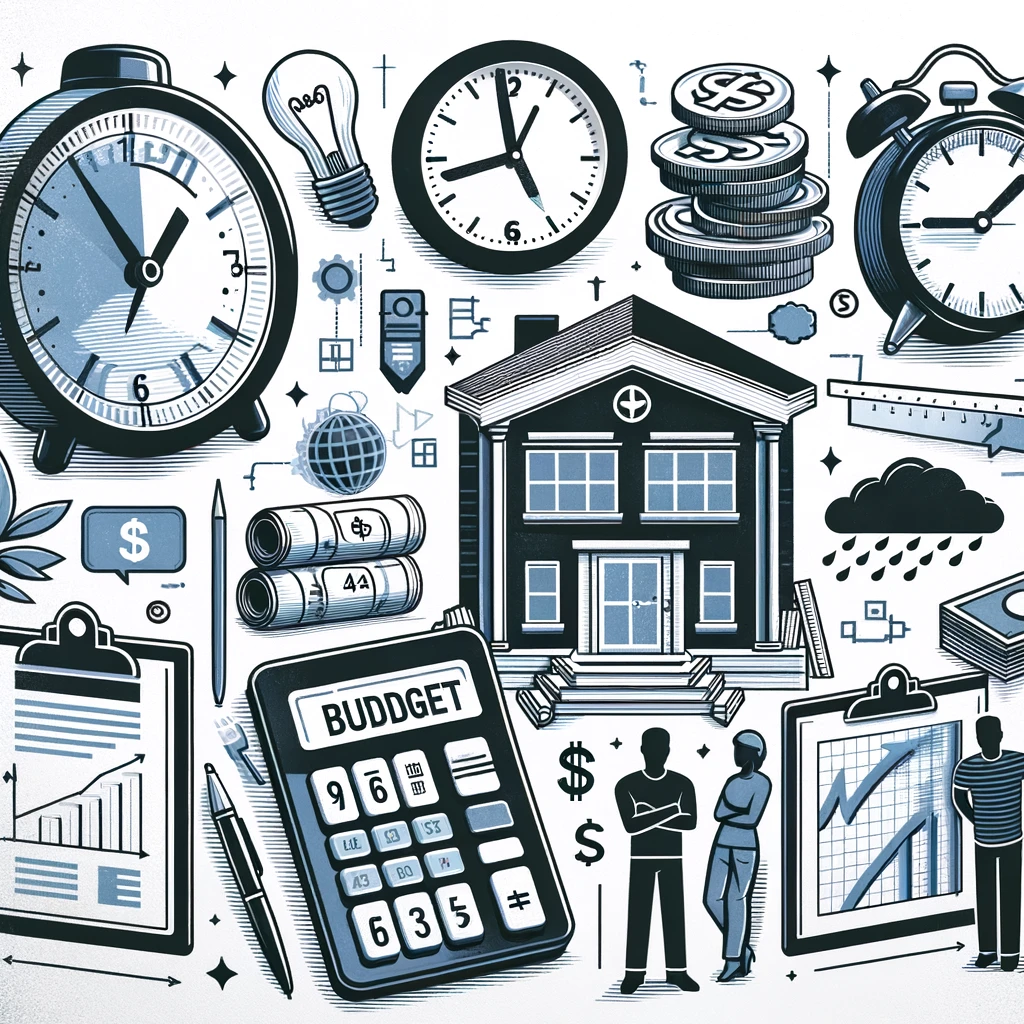Navigating the Hurdles: Common Challenges in Residential Construction
- Dillon Gottsch
- Mar 5, 2024
- 2 min read
Updated: Mar 8, 2024
The journey of constructing a residential building, whether it's a dream home or a substantial renovation, is an adventure filled with excitement and, inevitably, a set of challenges. Understanding these hurdles is crucial for homeowners and construction professionals alike, as it prepares them for a smoother building process. In this blog post, we'll delve into the common challenges encountered in residential construction and offer insights on how to navigate these waters effectively.
1. Budget Constraints
One of the most prevalent challenges in residential construction is adhering to a budget. Costs can quickly escalate due to unforeseen issues, changes in project scope, or fluctuations in material prices. Effective budget management requires a detailed and transparent initial estimate, a contingency reserve for unexpected expenses, and open communication between homeowners and contractors to manage changes without derailing the project financially.
2. Permit and Regulation Compliance
Navigating the labyrinth of building permits and regulations can be daunting. Each jurisdiction has its own set of rules governing construction, and failure to comply can result in costly delays or legal issues. It's essential to understand these requirements from the outset, and working with knowledgeable local contractors can streamline this process, ensuring that your project meets all legal standards.
3. Supply Chain Disruptions
Recent times have highlighted the vulnerability of global supply chains, and the construction industry is not immune. Delays in the delivery of materials can stall projects and lead to budget overruns. Proactive planning, flexible scheduling, and selecting locally available materials when possible can mitigate these risks and keep your project on track.
4. Labor Shortages
The construction industry often faces labor shortages, which can lead to delays and increased labor costs. Ensuring a skilled workforce requires early planning and engagement with reputable contractors who have established teams. Exploring alternative building methods or materials that require less labor-intensive installation can also be a viable solution.
5. Weather-Related Delays
Weather is an unpredictable factor that can significantly impact construction schedules. Extreme conditions, such as heavy rain, snow, or high winds, can halt work and prolong project timelines. While weather is beyond control, incorporating buffer periods into the construction schedule and planning work around typical weather patterns for the area can help minimize disruptions.
6. Client-Contractor Communication
Effective communication between homeowners and construction teams is pivotal. Misunderstandings or miscommunications can lead to project delays, increased costs, or dissatisfaction with the final product. Regular meetings, clear documentation, and the use of project management tools can enhance transparency and ensure that everyone is aligned with the project goals and progress.
7. Quality Control
Maintaining high-quality standards throughout the construction process is essential but challenging. Skilled labor, high-quality materials, and attentive supervision are key components of ensuring that the finished project meets or exceeds expectations. Implementing a rigorous quality assurance process and regular inspections can help identify and rectify issues before they become significant problems.
Conclusion
Residential construction projects are complex endeavors that require careful planning, flexibility, and collaboration. By understanding and preparing for the common challenges that arise, homeowners and construction professionals can navigate these obstacles more effectively, leading to successful project completion and the realization of dream homes. Remember, every challenge presents an opportunity to learn, adapt, and improve, making the journey of building a home as rewarding as the final outcome.







Comments